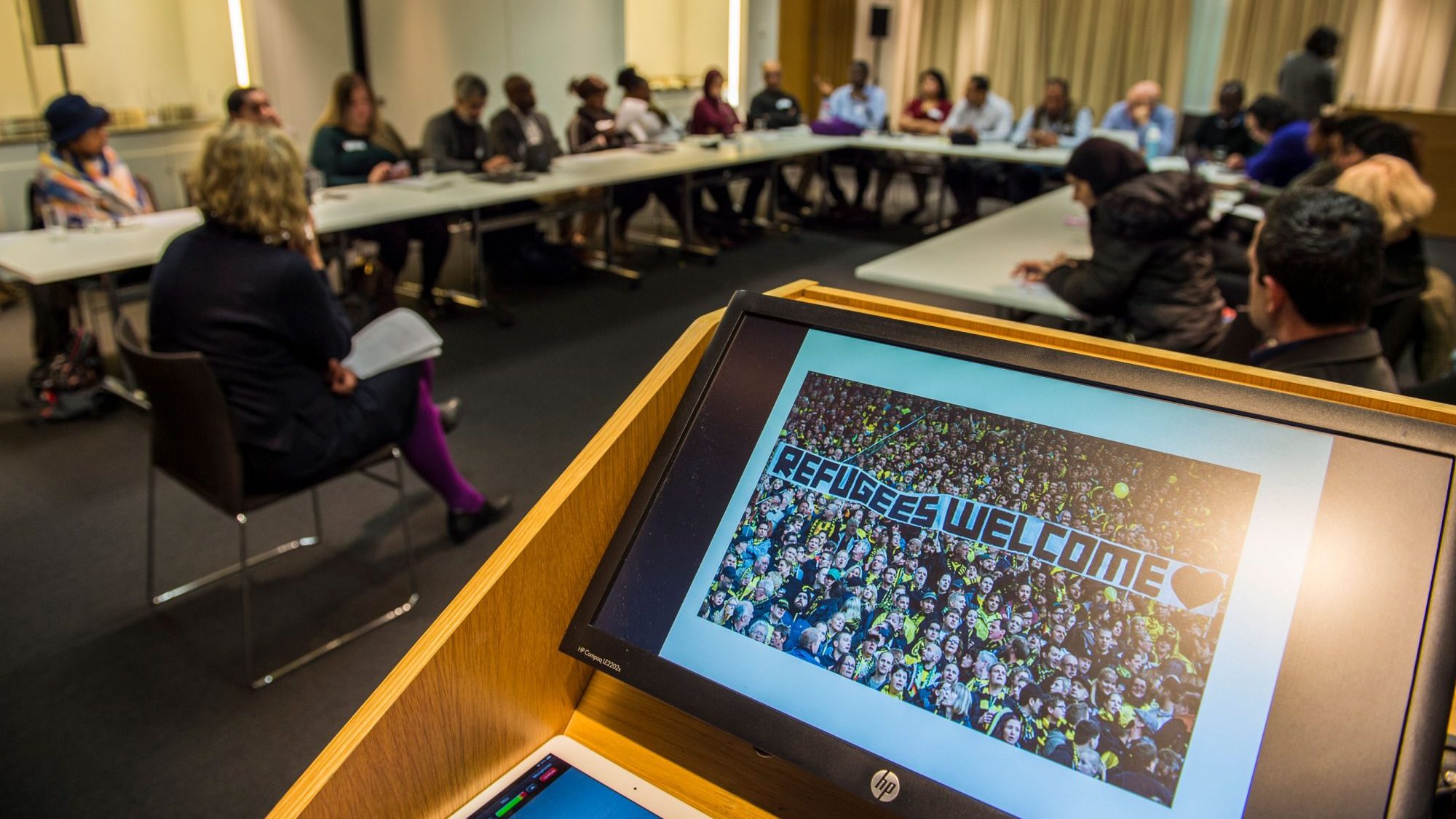We looking for UK-based professional journalists with a refugee background who want to rebuild their careers. Between March and August, 15 selected participants will have the opportunity to acquire new media skills, publish journalistic content, and build professional networks through collaborations. In September, all participants will be invited to apply for the second phase which offers three six-month paid traineeships.
The benefits of taking part:
• You will take part in workshops that are delivered either by London College of Communication or by media organisations including The Guardian Foundation and Google News Initiative.
• You will be mentored by an experienced UK-based journalist.
• You will get the opportunity to publish your work.
• You will receive career guidance, and workshops to support your English language development.
• You will have the opportunity to apply for a six-month paid journalism traineeship.
• You will become part of an established network of journalists.
In order to meet the eligibility criteria, you must have:
• Refugee status (or Humanitarian Protection or Discretionary Leave to Remain as a result of an asylum claim).
• An average IELTS of 5.5 (or able to demonstrate a good command of English)
• Experience or qualifications in journalism, communications or a media-related field.
• You must be able to attend workshops between March and September 2020 (the exact dates will be supplied at a later stage)
• Be based in the UK.
In order to be considered for the project, please send a Curriculum Vitae (with the name and contact details of a referee) AND a 400-word written piece explaining why you are applying for this opportunity to: rjp@arts.ac.uk. Candidates will be selected on the basis of on the information provided. You may be required to attend an interview.
Workshops are due to start in March 2020, so please ensure that your application is submitted by 22nd February 2020. All applications will be notified of the outcome by 2nd March 2020. The details for the paid traineeship will be circulated later on in the year.
This work is funded by Open Society Foundations and Google News Initiative.
